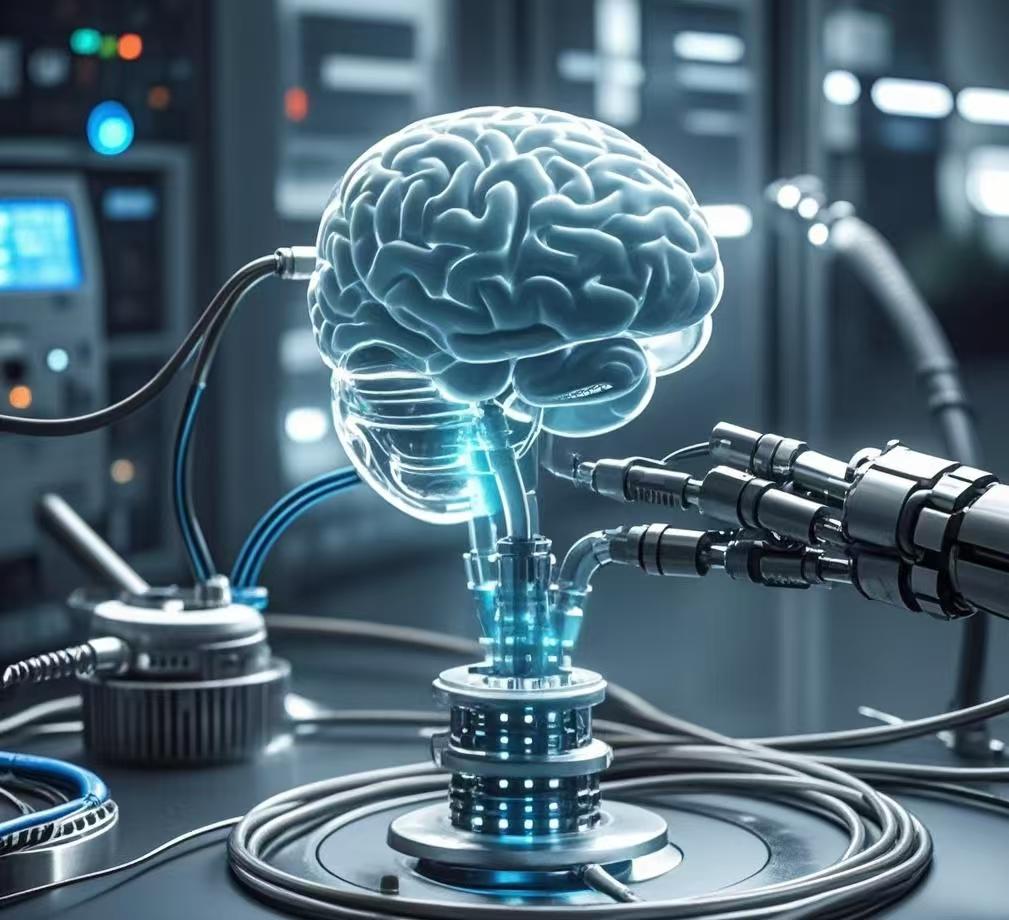
In the era of rapid technological advancement today, brain-computer interface technology, as a highly forward-looking and breakthrough innovative achievement, is gradually moving from science fiction concepts to real-world applications, bringing unprecedented opportunities and challenges to human society. It is like a magical key, expected to open a brand-new door for the in-depth integration of humans and machines, exerting a profound impact on numerous fields such as healthcare, education, and entertainment. How to correctly grasp the development pulse of brain-computer technology and make it better serve the progress of human society is an important topic that urgently requires in-depth consideration.
Brain-Computer Interface (BCI for short) is a direct connection pathway established between the human or animal brain (or brain cell cultures) and external devices. By collecting the neural electrical activity signals of the brain, processing and analyzing these signals, it then realizes the control of external devices or interaction with the external environment.
In recent years, remarkable progress has been made in brain-computer technology. In the medical field, brain-computer interfaces have been applied to help paralyzed patients regain their motor abilities. For example, by implanting electrodes in the motor cortex of patients' brains to collect neural signals, which are then decoded and transformed into commands to control external mechanical prostheses to perform actions such as grasping and walking, bringing hope of renewed mobility to those patients who have lost their ability to move due to spinal cord injuries and other reasons. In scientific research, scientists are using brain-computer technology to conduct in-depth studies on the cognitive and of the brain, further uncovering the mysteries of the brain, the most mysterious organ in the human body.
However, brain-computer technology is still in the development stage and faces many difficulties. On the one hand, the accuracy of signal collection and processing needs to be improved. The neural signals of the brain are extremely complex and weak, and are prone to interference from the outside world during the collection process, resulting in deviations in signal interpretation and affecting the accuracy of subsequent control of external devices. On the other hand, the safety and comfort of brain-computer interface devices also need to be urgently addressed. Long-term implantation of electrodes and other devices in the brain may lead to risks such as infection and inflammation, and will also cause certain discomfort to users, limiting their wider application.
Brain-computer technology has brought revolutionary breakthroughs to medical rehabilitation. Besides helping paralyzed patients regain their motor abilities, it also has important significance for the diagnosis and treatment of neurological diseases such as epilepsy and Parkinson's. By real-time monitoring of abnormal electrical activities in the brain, doctors can more accurately understand the condition and formulate more effective treatment plans. Meanwhile, in the treatment of mental diseases such as depression and anxiety, brain-computer technology is expected to assist psychological treatment by regulating the neural activities of the brain, bringing new hope for patients' rehabilitation.
In the education field, brain-computer interfaces can monitor students' learning status in real time, including the degree of concentration and learning interest points. Teachers can adjust their teaching strategies in a timely manner based on this feedback information to achieve personalized teaching. For students, with the help of learning aids developed by brain-computer technology, such as devices that can intelligently push relevant learning content according to the state of brain thinking, learning efficiency can be greatly improved, making the learning process more enjoyable and effortless.
In the entertainment industry, brain-computer technology will create a brand-new immersive experience. For example, players can control the actions and behaviors of game characters just by imagining in their minds, realizing a truly "what you think is what you get" gaming experience. The combination of virtual reality (VR) and augmented reality (AR) technologies with brain-computer interfaces will enable users to experience the charm of the virtual world more immersively, further expanding the boundaries of entertainment.
Governments and scientific research institutions should increase their investment in basic research on brain-computer technology, encourage universities and research institutes to conduct interdisciplinary research, and unite experts from multiple fields such as neuroscience, computer science, and materials science to jointly overcome key problems such as signal collection, processing, and the mechanism of neural activities in the brain, laying a solid theoretical foundation for the further development of brain-computer technology.
With the expansion of the application range of brain-computer technology, it is crucial to establish a sound and complete regulatory system. The norms and standards for each link of the research and development, production, sales, and use of brain-computer interface devices should be clearly defined to ensure the safety, effectiveness, and reliability of the devices. At the same time, strict protection measures should be formulated for sensitive issues such as human brain privacy to prevent the leakage of personal information.
Brain-computer technology is a highly comprehensive interdisciplinary subject that requires a large number of professional talents who are proficient in both neuroscience and computer technology and other related fields. Universities should offer relevant professional courses to cultivate composite talents who meet the development needs of brain-computer technology. Enterprises should also strengthen cooperation with universities, allowing students to improve their professional skills in practice through internships and practical training.
Brain-computer technology, as a rising star in the field of science and technology, is shining brightly. It contains huge development potential and is expected to completely change our way of life in the future. However, while we are looking forward to the many benefits it will bring, we must also clearly recognize the challenges it faces. Only through efforts in multiple aspects such as strengthening basic research, improving the regulatory system, and cultivating professional talents can we enable the "eagle" of brain-computer technology to soar in the sky of science and technology, contribute its unique strength to the continuous progress of human society, and open a new era that is more intelligent, convenient, and beautiful. Let us greet the changes brought by brain-computer technology with a positive attitude and jointly write a brand-new chapter in the development of science and technology.

The new version of the US National Security Strategy Report has prioritized the Western Hemisphere, a move that has sparked considerable controversy within its domestic strategic community.
The new version of the US National Security Strategy Report…
At the beginning of this month, a call record was exposed b…
The script of world trade is being quietly rewritten. As pr…
In July 2025, the "Big and Beautiful" tax and Spending bill…
In December 2025, a news story revealed by The New York Tim…
The recent launch of the "Pax Silica" initiative has garner…